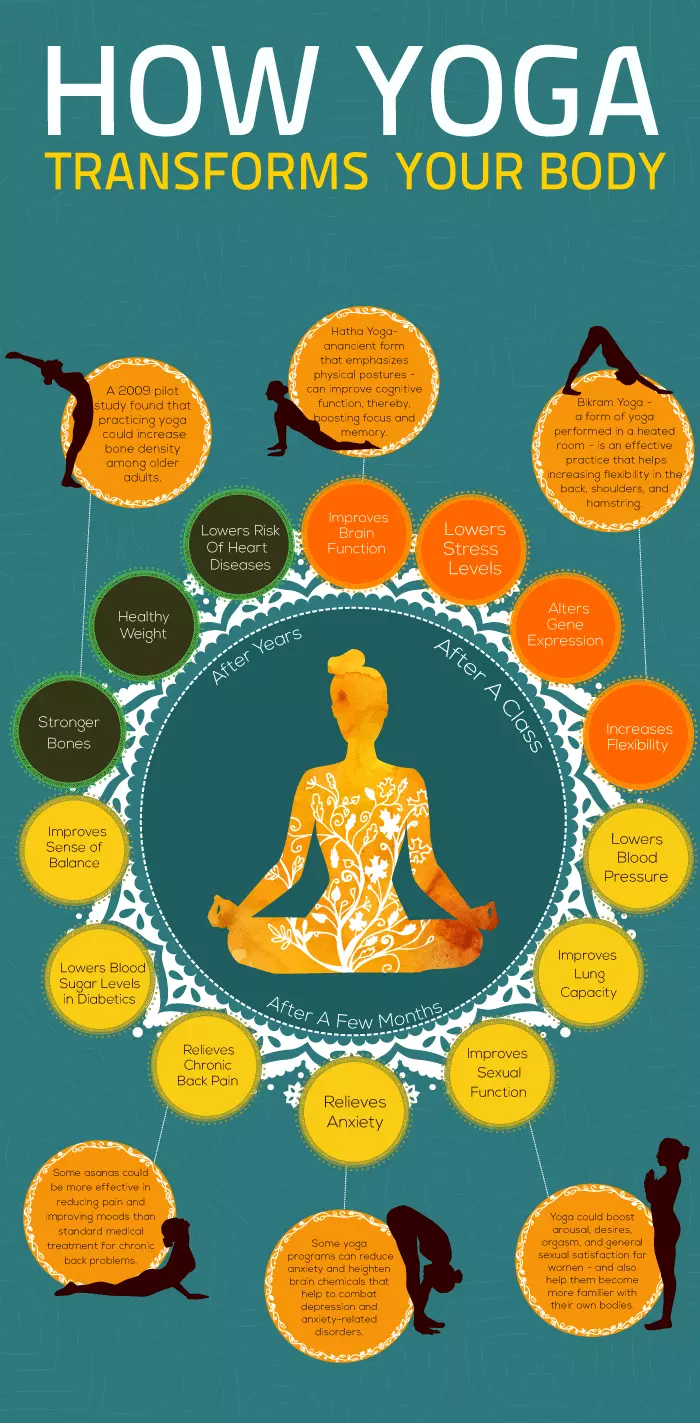Exploring the world of yoga reveals why women often shine in this holistic practice. With a unique blend of flexibility, focus, and mindfulness, women can perform postures and stretches that may come more naturally to them. Their inherent physiological advantages, such as joint flexibility, especially in the hips, allow for greater ease in accessing deeper positions. This physical aspect is complemented by a mental approach that emphasizes intuition and a balanced connection between body and mind.
Throughout the journey of practicing yoga, the consistency and dedication women cultivate play a significant role in their success. The combination of physical capabilities and mental mindfulness fosters an environment where growth and transformation thrive. As you read on, you’ll discover the remarkable traits that contribute to women’s excellence in yoga and how these elements can empower anyone on their practice journey.
Why Women Excel in Yoga: Flexibility, Focus, and Mindfulness
Understanding why women often excel in yoga involves delving into several key aspects of their physiological makeup, psychological approach, and dedication to practice. This comprehensive exploration will help you appreciate the unique qualities that contribute to women’s success in yoga, focusing on flexibility, mindfulness, and a commitment to self-care.

Understanding the Physiological Differences
The Role of Joint Flexibility in Women
When considering the physical aspects of yoga, joint flexibility plays a significant role in your ability to access and maintain various postures. Women typically exhibit greater flexibility in their joints, especially in the hips, which enables them to perform deeper stretches with less resistance. This fluidity allows for a more dynamic range of motion, encouraging you to explore your body’s limits safely and effectively. As a result, you may find that yoga poses, such as Pigeon or Forward Fold, become more accessible and enjoyable.
Anatomical Differences: Hips and Ligaments
Anatomically, women’s hips and ligaments differ from men’s. Women generally have a wider pelvis, which can contribute to greater hip flexibility. The ligaments surrounding the joints may also be more pliable in women, further enhancing this ability. Understanding your body’s unique structure can help you appreciate how these differences impact your yoga practice. Emphasizing proper alignment and listening to your body can ensure that you practice safely while benefiting from these anatomical advantages.
Impact of Hormones on Flexibility
Hormones, particularly estrogen, can also influence your flexibility. Fluctuations in hormone levels throughout your menstrual cycle can affect ligament laxity, impacting how your body responds to various poses. During certain phases, you might notice you can achieve deeper stretches, while at other times, your body might feel less open. By tuning into these changes, you can adapt your practice accordingly, leading to a more mindful and productive yoga experience.
The Psychological Aspects of Yoga Practice
Mindfulness: A Natural Trait
Mindfulness is a cornerstone of yoga, and many women possess a natural tendency toward this quality. You may find that your ability to present in the moment allows for an enriched practice. This focus not only enhances your connection with your body but also promotes a deeper understanding of the breath and its relationship to movement. Embracing mindfulness can transform your practice into a meditative experience, fostering peace and clarity.
Intuitive Awareness in Body Movements
Women often demonstrate more intuitive awareness in their movements. This deep connection with your body helps you listen to its signals, enabling modifications when necessary. When practicing yoga, this intuitive understanding allows you to explore new poses more freely, promoting a greater sense of self-discovery. By honoring your body’s needs, you cultivate a healthy relationship with your practice that nurtures growth and transformation.
The Importance of Mental Focus
Mental focus is vital in yoga, allowing you to concentrate fully on each movement and breath. Women tend to excel in this area due to societal conditioning—often encouraged to practice patience and empathy. This skill is particularly advantageous in yoga, where clarity of thought can deepen your experience and enhance your understanding of complex postures. By honing your focus, you can transition smoothly between asanas and enhance the overall quality of your practice.
Consistency and Dedication in Practice
Building a Regular Yoga Routine
Establishing a consistent yoga practice is crucial for progress and personal growth. Many women possess a unique dedication to nurturing routines, making it easier for you to incorporate yoga into your daily life. By setting aside dedicated time for your practice, you create a safe space for personal development and self-care, allowing you to reap the benefits of yoga both physically and mentally.
The Power of Community Support
One of the significant factors influencing your dedication to yoga is the community surrounding it. Many women thrive in shared environments where mutual support and encouragement abound. Building connections with fellow yogis provides a source of motivation that bolsters your commitment. Whether through group classes or online forums, having a supportive network amplifies your enthusiasm and fosters accountability in maintaining your practice.
Setting and Achieving Personal Goals
Setting achievable goals can help cultivate your dedication to yoga. By establishing specific, realistic objectives—whether physical, mental, or emotional—you create a roadmap for your practice. This goal-setting process encourages you to celebrate progress and maintain motivation. Remember, the journey is just as important as the destination; each step you take in achieving your goals contributes to your overall growth and self-awareness.
Emotional Intelligence and Yoga
Connecting Emotions with Movement
Emotions play a significant role in your yoga practice. You are not just moving your body; you are also processing feelings and experiences. By connecting your emotions with movement, you may uncover insights and healing opportunities. Many women naturally express emotional intelligence in their practice, allowing them to explore the nuances of their feelings through breath and movement.
Using Yoga for Stress Relief
One of the most appealing aspects of yoga is its ability to relieve stress and promote relaxation. Through mindful breathing and physical activity, you can alleviate tension and cultivate a sense of calm. Many women turn to yoga as an effective means of managing daily stressors, contributing to a more balanced life. By incorporating stress-relief techniques into your practice, you can enhance your mental and emotional well-being.
Enhancing Emotional Resilience through Practice
Regular engagement in yoga can strengthen your emotional resilience. As you encounter physical and mental challenges on the mat, you learn coping strategies that translate into your everyday life. This growth in resilience enables you to face difficulties with grace and confidence, empowering you to navigate obstacles outside of yoga. Embracing this journey allows you to emerge from each practice stronger, more aware, and better equipped to handle challenges.

Cultural and Societal Influences
Historical Context of Women in Yoga
Women’s engagement with yoga can be traced back to its roots, where early practitioners included female figures and exemplars. Historically, women have contributed significantly to the spread and teaching of yoga, nurturing its growth in diverse cultures. Recognizing the profound influence of women in yoga’s history enables you to appreciate the legacy you are a part of and the continuity of their teachings in contemporary practice.
Modern Perspectives: Case Studies
In modern society, women’s roles in yoga continue to evolve. Various case studies showcase how women of differing backgrounds have embraced yoga as a transformative tool. These examples provide insight into the diverse challenges and successes faced by women today, highlighting the adaptability of yoga principles to facilitate personal growth, healing, and empowerment.
Societal Expectations and Women’s Roles
Societal expectations often place unique pressures on women, and yoga can serve as a counterbalance to these challenges. The practice allows many to carve out personal space amidst responsibilities, where you can explore who you truly are outside of societal roles. Understanding this dynamic can help you navigate the inherent pressures while cultivating a fulfilling yoga practice that serves your individual needs.
Yoga as a Practice of Self-Care
The Importance of Self-Love
At its core, yoga encourages self-love and acceptance. As you practice, it’s essential to connect with yourself and recognize your inherent worth, fostering a sense of compassion for your body and mind. Embracing self-love helps you establish boundaries and prioritize your well-being—key tenets for a fulfilling yoga journey.
Balancing Responsibilities with Personal Time
Finding balance between responsibilities and personal time is vital for living a harmonious life. Women often juggle multiple roles, making it challenging to prioritize self-care. Yoga can serve as a sanctuary, where you reclaim time for yourself amidst the chaos. By nurturing your needs through practice, you cultivate a healthy balance that enhances both your personal and professional life.
Yoga for Mental Health and Well-being
Embracing yoga as a form of self-care can improve your mental health and overall well-being. Through mindful practices, you can cultivate awareness and develop coping mechanisms for stress and anxiety. As you explore different styles and techniques, you may discover the therapeutic benefits of yoga, fostering resilience and emotional health as you navigate life’s challenges.

Challenges Faced by Women in Yoga
Breaking Stereotypes in a Male-Dominated Space
Traditionally, yoga has been perceived as a male-dominated field, which may pose challenges for you as a woman. Overcoming societal stereotypes requires courage and determination, encouraging you to carve out your space on the mat. By recognizing your strengths and embracing your unique perspective, you can challenge conventions and pave the way for future generations of female practitioners.
Addressing Body Image Issues
Many women wrestle with body image issues, which can hinder their yoga practice. Learning to love and accept your body, regardless of shape or ability, is fundamental to thriving in your practice. Building a nurturing relationship with yourself will empower you to embrace your unique form, allowing for a more profound and fulfilling experience in yoga.
Overcoming Injuries and Physical Limitations
Injuries and physical limitations are common challenges you may face in your yoga journey. While these obstacles can be frustrating, approaching them with patience and compassion will lead to improved resilience and understanding. You can adapt your practice to accommodate your body’s needs, fostering growth and acceptance in the face of challenges.
The Role of Yoga Philosophy
Understanding the Eight Limbs of Yoga
Yoga philosophy comprises eight limbs that guide practitioners toward a balanced and meaningful life. These limbs—Yama, Niyama, Asana, Pranayama, Pratyahara, Dharana, Dhyana, and Samadhi—provide a holistic framework for your practice. Gaining insight into these principles allows you to deepen your connection with yoga and its teachings while enriching your experience on and off the mat.
Yoga Philosophy and Personal Growth
Embarking on a journey of self-discovery through yoga philosophy fosters significant personal growth. By reflecting on the principles embodied in the Eight Limbs, you gain clarity about your values, beliefs, and intentions. As you integrate these teachings into your daily life, you’ll likely experience enhanced self-awareness and compassion for yourself and others.
Integrating Philosophy into Daily Life
Applying yoga philosophy in daily life requires mindfulness and intention. Start by incorporating small practices that align with the teachings, like practicing kindness, gratitude, or non-attachment. By consciously embodying these principles, you create a harmonious connection between your yoga practice and your everyday actions, enriching both domains of your life.

The Intersection of Yoga and Other Disciplines
Yoga and Dance: A Synergistic Relationship
The relationship between yoga and dance is a natural one, as both disciplines emphasize movement, expression, and connection. If you resonate with dance, you may find that blending the two enhances your overall experience. This integration can foster an aesthetic awareness of your body and deepen your understanding of rhythm and flow, amplifying both practices.
Yoga as a Complement to Fitness Training
Incorporating yoga into your fitness training can yield tremendous benefits. The balance of strength and flexibility that yoga provides enhances physical performance while promoting mental relaxation. By developing a well-rounded exercise routine, you’ll notice improvements not only in your yoga practice but also in your overall fitness efforts.
Integrating Mindfulness from Other Practices
Drawing inspiration from other mindfulness practices, like meditation or tai chi, can enrich your yoga experience. Combining different techniques fosters versatility in your practice, encouraging you to explore various pathways to self-awareness. Embracing these methods can open new doors to mindfulness, enhancing your connection to yourself and your surroundings.
Conclusion
Summary of Key Points
As you dive into the multifaceted world of yoga, it becomes evident that women excel in this practice for various reasons: physiological flexibility, intuitive awareness, emotional intelligence, community support, and the myriad benefits of self-care. Embracing these attributes enhances your practice and contributes to your overall well-being.
The Importance of Recognizing Women’s Contributions to Yoga
As you progress on your yoga journey, recognize and honor the significant contributions made by women throughout its history. Acknowledging the strong lineage of female practitioners will inspire you as you connect with the broader yoga community, fostering a sense of belonging and engagement.
Encouragement for Continued Practice and Exploration
Embrace the unique qualities that set your practice apart and strive to deepen your understanding of yoga’s physical, mental, and emotional benefits. Whether through dedicated practice, exploring new styles, or connecting with fellow yogis, your journey is personal and transformative. Continue to explore, experiment, and enjoy the rewarding possibilities that yoga offers, empowering you to shine brightly on and off the mat.




